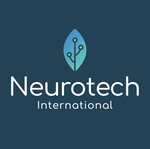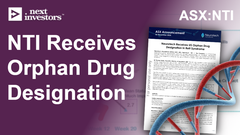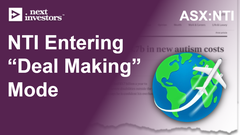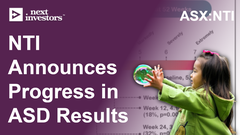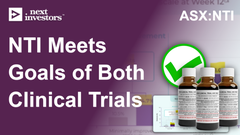Neurotech International (ASX: NTI) releases gene analysis on its cannabinoid based biopharmaceutical NTI164.
Yesterday, our biotech Investment Neurotech International (ASX: NTI) released gene analysis on its cannabinoid based biopharmaceutical NTI164.
The upshot - NTI now has research which shows NT164 works on a cellular level, altering proteins and genes that are associated with neuroinflammation.
This gene analysis is a bit like uncovering the reason NT164 works.
We think it could imply that a larger range of disorders linked to neuroinflammation may be treated too.
With further analysis pending, NTI has filed additional patent applications - so it appears that the company is moving quickly on its new findings.
For us, this week’s gene analysis strengthens the NTI's long held thesis that its treatment works on the neuroinflammatory pathway.
And with a deeper understanding of the science behind the mechanism of action we think the benefits for NTI are twofold in our eyes:
- Potential further evidence to take to regulators for approval - approval would allow NTI to commercialise its treatment. NTI is targeting rare paediatric neuropsychiatric disorders like Rett Syndrome and PANDAS/PANS as well as autism.
- Further credibility in the medical community - we think this analysis could help overcome some reticence in some medical circles to engage with a cannabinoid treatment - particularly if NTI’s planned publication of the genetic analysis is well received in a leading scientific journal (which NTI said this week it was planning to do).
The ideal flow on effect from these benefits would culminate in a commercial deal or licensing agreement - which NTI has firmly focussed its strategy on now that it has powerful clinical evidence in hand:
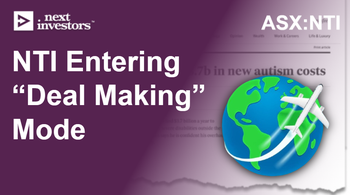
NTI clinical data in hand - now entering “deal making” mode
We already know NTI’s treatment is effective at significantly reducing the severity of symptoms for a range of disorders - thanks to multiple successful clinical trials.
Below is a quick summary of clinical data NTI has produced so far.
- PANDAS/PANS - Phase I/II trial showed clinically significant and meaningful improvements in clinical function, with excellent safety and tolerability over 12 weeks”
- Rett Syndrome - Phase I/II trial had an excellent safety profile compared to the leading drug DAYBUE, as well as clinically significant efficacy results that continued to improve over time.
- Autism Spectrum Disorder - Phase II/III trial showed that after 12 weeks of receiving NTI’s product patients with severe ASD improved to the point where symptoms are present but barely noticeable.
That data is certainly very valuable.
But when combined with this week's analysis - we’re thinking of the wider positive implications.
One of the key bits of language in this week’s announcement was:
“Certain important dysregulated pathways associated with immune function and gene translation significantly reversed with NTI164, including MECP2 (the defective gene in Rett Syndrome)”.
Which we think could explain the shared neuroinflammatory connection between PANDAS/PANS and Rett Syndrome.
Autism Spectrum Disorder as well, perhaps.
So we believe that there may yet be other neuroinflammatory indications that NTI could pursue too - noting that the company has indicated its intention to pursue a Cerebral Palsy trial.
With $11.6M in the bank at 30 June 2024, we think NTI has an excellent stretch of runway to advance commercial discussions.
In recent NTI coverage, we’ve noted the wildly successful exit that GW Pharmaceuticals achieved when it was acquired by Jazz Pharma.
Jazz Pharma paid US$7.2BN for the developer of a cannabinoid product called Epidiolex - forecast to deliver US$1BN in sales this year after delivering US$731M in 2022.
Each indication that NTI is pursuing has significant potential deal value numbers attached to it.
After yesterday, we’re now looking forward to the publication of this gene analysis in a leading scientific journal.
How does this news impact our NTI Investment Memo?
We see this week’s data as reducing overall regulatory risk for NTI over the long term…
Here’s the risk we identified back in August:
Regulatory risk
There are a number of key regulatory hurdles that NTI will need to clear.
This includes but is not limited to IND applications with the FDA, orphan drug status, provisional approval for fast tracked commercialisation with the TGA.
There is no guarantee that these regulatory approvals will be granted and if they are rejected it will be a big setback for NTI.
Source: 14 August 2024 NTI Investment Memo
What’s next for NTI?
Right now we’re most interested in the following milestones for NTI164 across the following potential orphan drug designations:.
Milestones
🔲 Orphan drug status Rett Syndrome (US)
🔲 Orphan drug status Rett Syndrome (Europe)
🔲 Orphan drug status PANDAS/PANS (US)
🔲 Orphan drug status PANDAS/PANS (Europe)

